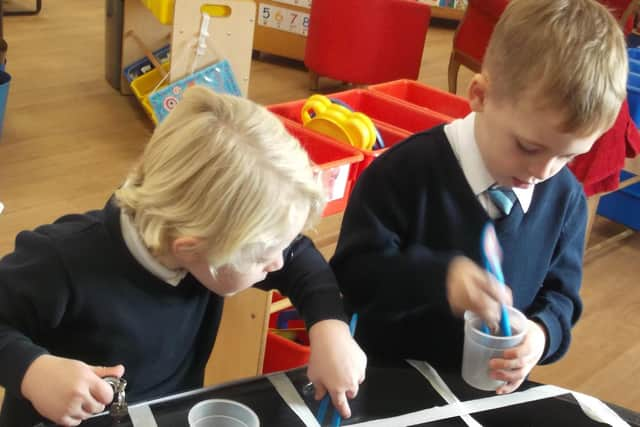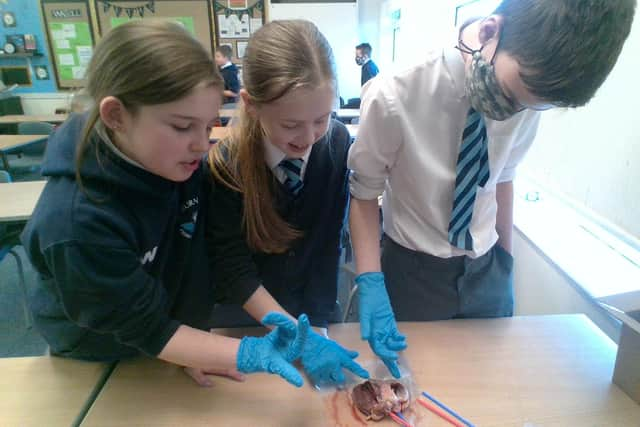Sunderland school receives top marks for its science provision
and live on Freeview channel 276
Staff and children at the school have been celebrating receiving the Gilt Award – the highest possible category for their science curriculum and teaching.
The PSQM programme ensures effective leadership of science, enables schools to work together to share good practice and is supported by professional development led by local experts.
Advertisement
Hide AdAdvertisement
Hide AdSchools that achieve PSQM demonstrate “commitment and expertise in science leadership, teaching and learning”.
Headteacher John Howe said: "Our science lead at school, Deborah Wilson, had to ensure that the provision for science in the school met all of the criteria and we were particularly praised for achieving the quality mark during the pandemic and lockdown period and the fact we maintained the high quality of science in the school during this challenging time."
The PSQM scheme is led by the University of Hertfordshire School of Education in collaboration with the Primary Science Teaching Trust.
National Director, Professor Jane Turner, said: “There was never a more important time for primary children to have a high-quality science education. The coronavirus pandemic has made everyone aware of the impact of science on our daily lives.
Advertisement
Hide AdAdvertisement
Hide Ad

"Primary schools have an important role to ensure that children understand how science works and keeps us healthy and safe. Schools that have achieved a Primary Science Quality Mark have demonstrated a significant commitment to science teaching and learning, even at this challenging time for schools.
"The profile and quality of science in each awarded school is very high. Children are engaging with great science both in and outside the classroom, developing positive attitudes towards science as well as secure scientific understanding and skills. Science subject leaders, their colleagues, headteachers, children, parents and governors should be very proud.”
One of the science initiatives the children have recently been involved in is the Wild Oyster Project taking place at Sunderland Marina.


Pupils have been helping to monitor oyster farm populations with the view to use larvae from the nurseries to create a self-sustaining population of oysters on a 2.5km square offshore reef created by 150 tonnes of used scallop shells.
Comment Guidelines
National World encourages reader discussion on our stories. User feedback, insights and back-and-forth exchanges add a rich layer of context to reporting. Please review our Community Guidelines before commenting.
